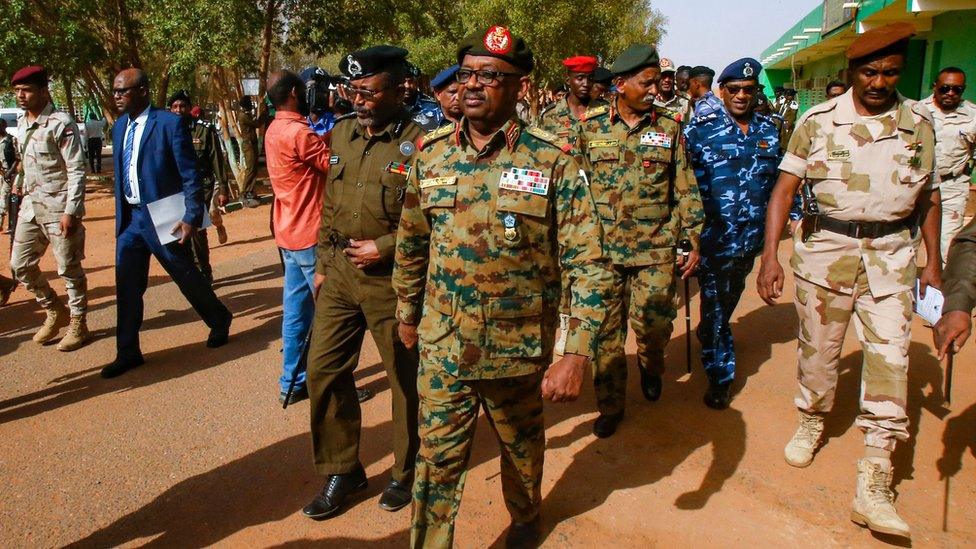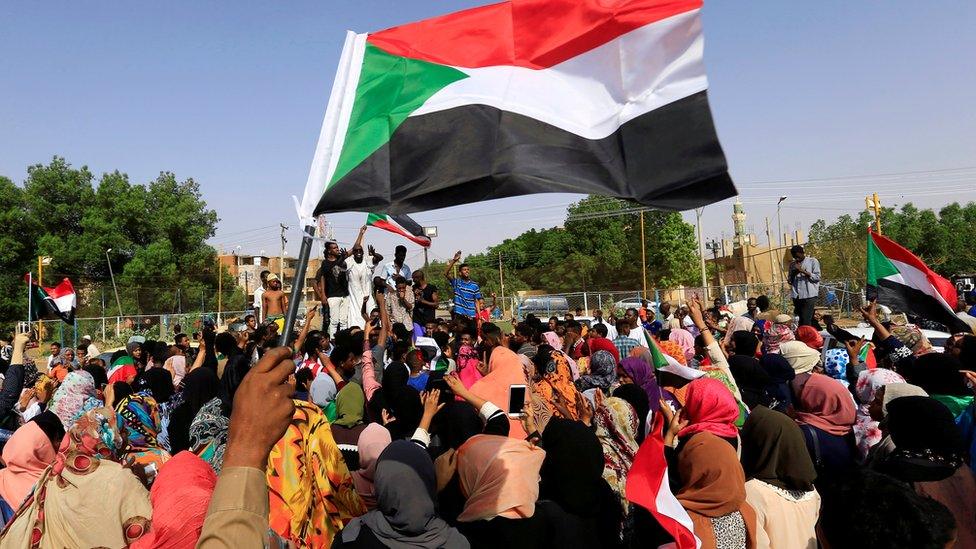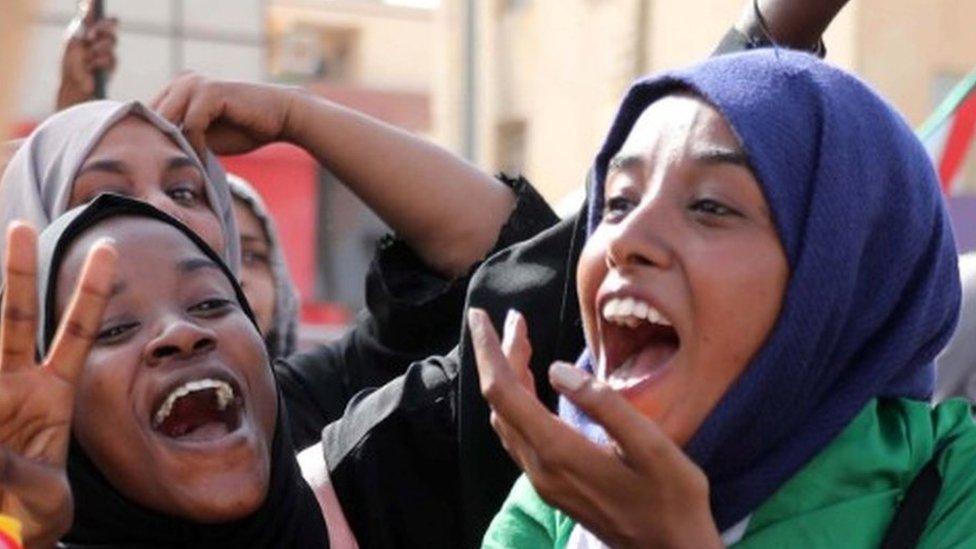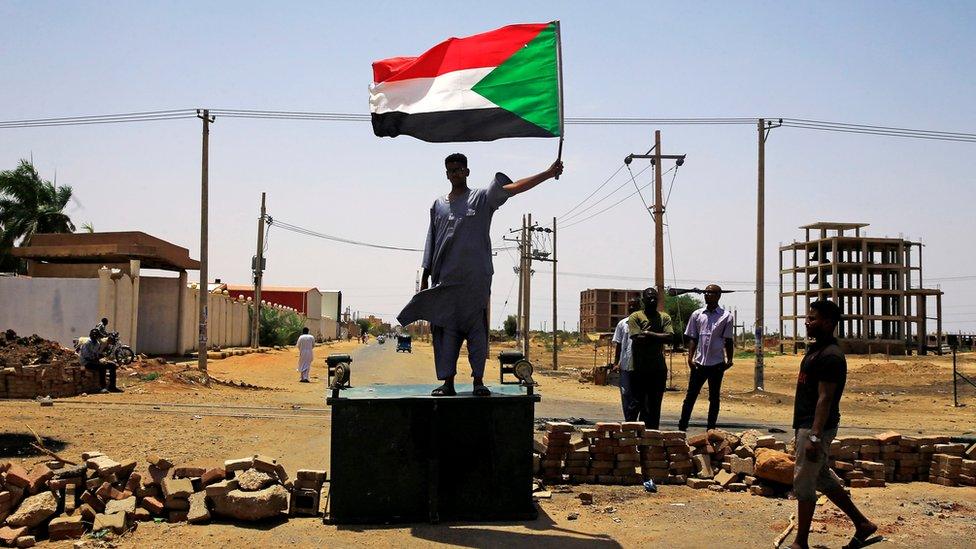Sudan crisis: Military council says it foiled a coup attempt
- Published

General Jamal Omar, centre, said the coup was launched to stop a power-sharing deal with demonstrators
Sudan's ruling military council has said it foiled an attempted coup aimed at blocking a power-sharing deal with opposition groups.
More than a dozen people - among them former and current army officers and members of the security services - were arrested, a military spokesman said.
Sudan has faced turmoil since President Omar al-Bashir was ousted in April.
Meanwhile, a BBC investigation has heard claims linking the military council to an attack on protesters.
Analysis by BBC Africa Eye of mobile phone footage from the 3 June massacre showed the Rapid Support Forces, a paramilitary group under command of the ruling military council, firing at protesters with live ammunition.
Two men who said they were serving RSF officers told the BBC that the attack was ordered by the leadership of the RSF. Their allegations could not be independently verified by the BBC.
The RSF leadership has denied responsibility, and claimed that rogue elements were behind the attack.
The attempted coup
General Jamal Omar, a member of the ruling Transitional Military Council (TMC), said in a television broadcast that 12 officers and four soldiers had been arrested. He said the organiser of the alleged coup had not been found.
"We saw the dangers and threats, which have been threatening the safety and security of this nation, by a group of people who refuse the demands of the people," Gen Omar said.

Sudan has been in turmoil since a military coup removed President Omar al-Bashir in April
Earlier in July, the military agreed to share power with a civilian opposition alliance. The agreement has yet to be signed, but it would see control over a governing sovereign council rotate between civilian and military rule for three years until elections can be held.
Previous talks between the demonstrators and the military collapsed in the wake of the 3 June massacre.
What happened in the massacre?
Pro-democracy demonstrators remained on the streets of Khartoum after the removal of President Bashir in April, occupying the square outside the military headquarters as negotiators tried to persuade the military council to hand power to civilians.
In early June, security forces moved on the protesters, firing live ammunition into the crowds to clear the square.
What happened during the 3 June massacre?
A health ministry official said 46 people died in the violence. But opposition groups said at least 100 people were killed by the RSF. Survivors said the paramilitary unit threw corpses in the river Nile after the massacre.
The RSF grew out of the Janjaweed militia which was accused of carrying out a genocide in the Darfur region of western Sudan.
General Mohamed Hamdan "Hemeti" Dagolo, the vice-president of the military council and leader of the RSF, denied any responsibility for the deaths. He blamed rogue elements for the violence, saying impostors wearing RSF uniforms had been arrested before the massacre took place.
But two men who say they are currently serving RSF officers - and admitted taking part in the 3 June violence - told the BBC that orders came from the top.
One source said General Hemeti himself gave them the instructions to clear the sit-in. "He told us to clear it and that's what we did. We carry out any orders that the commander gives," the source said.
- Published5 July 2019

- Published6 June 2019
